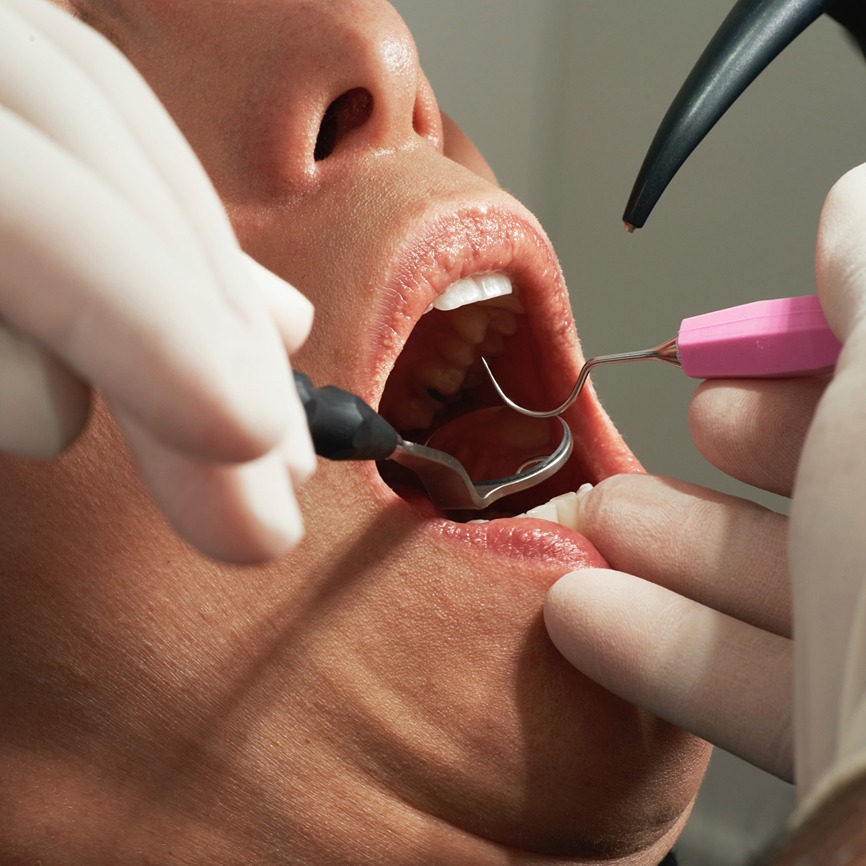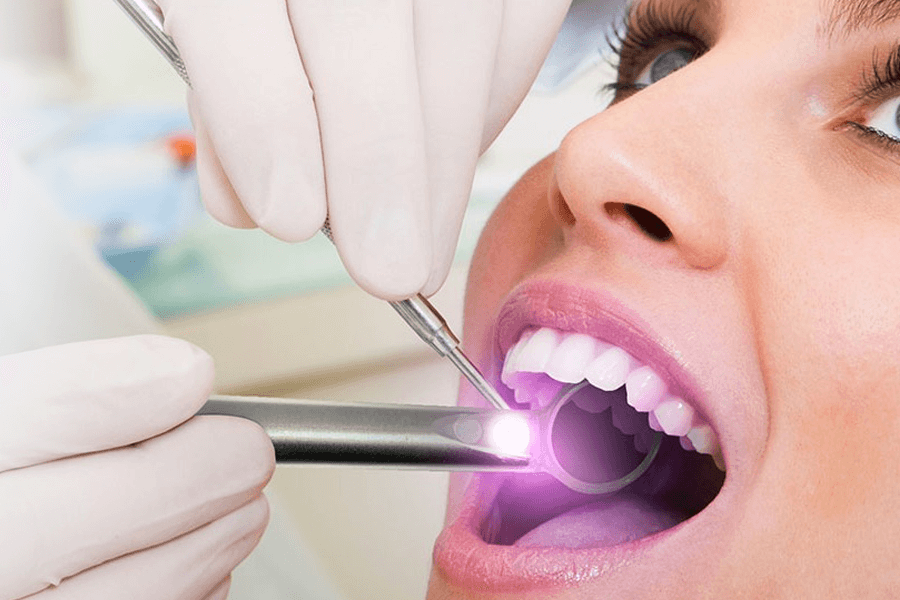

Maintaining good oral health is crucial for overall well-being. Our oral cavity is home to millions of bacteria, and if proper care is not taken, it can lead to various dental problems. From tooth decay to gum disease, bad breath to oral cancer, there are several common dental issues that people face. In this article, we will explore these problems in detail and discuss their causes, symptoms, prevention measures, and treatment options.
Tooth decay, also known as dental caries or cavities, is one of the most prevalent dental problems worldwide. It occurs when the outer layer of the tooth, called enamel, gets damaged due to the acids produced by bacteria in the mouth. Poor oral hygiene, excessive consumption of sugary foods and drinks, and lack of fluoride are some common causes of tooth decay.
Prevention is always better than cure when it comes to tooth decay. Regular brushing with fluoride toothpaste, flossing, and using mouthwash can help remove plaque and prevent the buildup of harmful bacteria. Additionally, reducing the intake of sugary foods and drinks, maintaining a balanced diet, and visiting the dentist for regular check-ups and cleanings are essential preventive measures.
Gum disease, also known as periodontal disease, is an infection of the tissues that surround and support the teeth. It is caused by the buildup of plaque on the teeth, which eventually leads to inflammation and infection of the gums. Poor oral hygiene, smoking, hormonal changes, certain medications, and genetic factors can contribute to gum disease.
Symptoms of gum disease include redness, swelling, bleeding gums, bad breath, receding gums, and loose teeth. If left untreated, it can progress to more severe forms and even result in tooth loss. Treatment options for gum disease depend on the severity of the condition. They may include professional cleaning, scaling and root planing, antibiotics, and in severe cases, surgery.
Tooth sensitivity is a common dental problem characterized by a sharp pain or discomfort when consuming hot, cold, sweet, or acidic foods and drinks. It occurs when the protective layer of the tooth, called enamel, gets worn down or when the tooth roots become exposed. Brushing too hard, gum recession, tooth grinding, and dental procedures such as teeth whitening can cause tooth sensitivity.
There are several remedies for tooth sensitivity. Using desensitizing toothpaste that contains ingredients like potassium nitrate or fluoride can help reduce sensitivity. Avoiding acidic foods and drinks, using a soft-bristled toothbrush, practicing proper oral hygiene, and wearing a mouthguard to prevent teeth grinding are also effective measures to alleviate tooth sensitivity.
Bad breath, also known as halitosis, is an embarrassing dental problem that affects many individuals. It can be caused by various factors such as poor oral hygiene, gum disease, dry mouth, smoking, certain medications, and underlying health conditions like respiratory infections or liver disease.
To combat bad breath, it is essential to practice good oral hygiene. This includes brushing your teeth twice a day, flossing daily, cleaning your tongue with a tongue scraper or toothbrush, and using mouthwash. Drinking plenty of water to keep your mouth hydrated and avoiding tobacco products can also help eliminate bad breath. If the problem persists despite these measures, it is advisable to consult a dentist to rule out any underlying dental or medical conditions.

Oral cancer refers to cancer that develops in any part of the mouth or throat. It can affect the lips, tongue, cheeks, floor of the mouth, hard and soft palate, sinuses, and throat. Tobacco use, excessive alcohol consumption, sun exposure to the lips, a family history of oral cancer, and certain viral infections like human papillomavirus (HPV) are some of the risk factors for oral cancer.
Prevention is crucial in reducing the risk of oral cancer. Avoiding tobacco products, limiting alcohol consumption, practicing safe sun exposure by using lip balm with SPF, and getting vaccinated against HPV are important preventive measures. Regular dental check-ups can also help in early detection and treatment of any suspicious lesions or abnormalities in the mouth.
Teeth grinding, also known as bruxism, is a condition characterized by clenching or grinding of the teeth, often during sleep. It can lead to various dental problems such as tooth wear, jaw pain, headaches, and even damage to the temporomandibular joint (TMJ). Stress, anxiety, misaligned teeth, and sleep disorders like sleep apnea are common causes of teeth grinding.
Treatment options for teeth grinding depend on the underlying cause. Stress management techniques such as relaxation exercises or therapy can help reduce teeth grinding caused by anxiety. Wearing a custom-made mouthguard or splint can protect the teeth from further damage. In severe cases, orthodontic treatment to correct misaligned teeth or medication to manage sleep disorders may be recommended.
Crooked teeth refer to teeth that are not aligned properly. They can be caused by various factors such as genetics, overcrowding of teeth, thumb sucking during childhood, early loss of baby teeth, and certain oral habits like tongue thrusting or mouth breathing. Crooked teeth not only affect the appearance but can also lead to difficulties in chewing, speech problems, and an increased risk of dental problems like tooth decay and gum disease.
Treatment options for crooked teeth depend on the severity of the misalignment. Orthodontic treatment, such as braces or clear aligners, is commonly used to straighten crooked teeth. In some cases, tooth extraction may be necessary to create space for proper alignment. Early intervention in childhood can help prevent severe misalignment and reduce the need for extensive treatment later in life.
Maintaining good oral health is essential for overall well-being. Regular dental check-ups, proper oral hygiene practices, and a healthy lifestyle can help prevent and manage common dental problems. Brushing your teeth at least twice a day with fluoride toothpaste, flossing daily, using mouthwash, and replacing your toothbrush every three to four months are important steps in maintaining good oral hygiene.
In addition to these basic practices, it is important to eat a balanced diet rich in fruits, vegetables, and whole grains while limiting sugary foods and drinks. Avoiding tobacco products, limiting alcohol consumption, and practicing stress management techniques can also contribute to good oral health. Lastly, scheduling regular dental check-ups and cleanings can help detect any dental problems early on and prevent them from progressing into more severe conditions.
If you’re in Murfreesboro TN, or the surrounding areas, Legacy Family Dental is an excellent choice for complete dental care solutions. We are your local Murfreesboro Dental Office. With a team of experienced professionals who are dedicated to providing high-quality dental services, Legacy Family Dental ensures that every patient receives personalized care tailored to their specific needs. We offer a wide range of services from routine cleanings to more complex procedures like root canals and dental implants.
Legacy Family Dental understands the importance of good oral health and strives to provide our patients with the knowledge and tools they need to maintain it. We believe in educating our patients about proper oral hygiene practices and the impact of diet on oral health. Our goal is not just to treat dental issues but also to prevent them from occurring in the first place. Call us today 615-867-1735 and scheduled your first appointment.